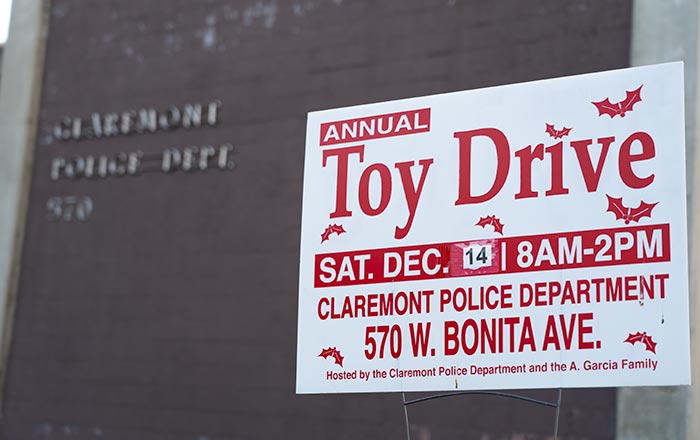City of La Verne pushes back over negative water quality claims
As we wait for the judge’s ruling on Claremont’s right to take the water system, key players involved continue to exchange tough words.
In a letter dated August 23, La Verne mayor Don Kendrick objected to Golden State Water Company’s (GSW) characterization of the city’s water system as unsafe. La Verne, which struck a deal with Claremont to help manage the water system, was lambasted during the trial over unsafe levels of lead in their system.
Mr. Kendrick noted the city was forced to participate in the trial proceedings, and said he and the La Verne City Council “are extremely troubled by the statements and mischaracterizations that have been used by you and your attorneys as to our water system operations.”
Mr. Kendrick took issue with a number of assertions by GSW attorney George Soneff, of Manatt, Phelps & Phillips, that La Verne is a “bad operator” with a spotty record that falsified consumer reports to make the city look better.
During the trial, Mr. Soneff admitted La Verne’s water twice surpassed the 15 parts-per-billion limit for lead, once in 2009 (24 ppb) and again in 2012 (16 ppb). In a previous statement, La Verne emphasized that the incidents were not system-wide and were quickly fixed.
In addition, the city objected to statements by GSW Senior Vice President of Regulated Utilities Denise Kruger, who insisted during her testimony that La Verne failed to follow regulatory standards for lead testing and reporting, even comparing La Verne to the city of Flint, Michigan.
“While we respect Golden State’s desire to do what it can to protect its assets,” Mr. Kendrick said, “we find these deleterious tactics and statements that our operations are inferior and injurious to our residents are far beyond acceptable and certainly not something befitting a service provider of our community.”
La Verne’s agreement with Claremont—should the city win its eminent domain lawsuit over GSW—stipulates that La Verne will be paid 10 percent of the annual operating budget, which is yet determined. Based on evidence presented at the trial, the city of La Verne estimates their cost to run the system will be $1 million a year.
Ms. Kruger responded to Mr. Kendrick’s letter three days later on August 26, noting that GSW “took no pleasure in publicly exposing La Verne’s water quality record,” but was pushed to do so during the lawsuit discovery process.
“In other words, we did not set out to scrutinize La Verne’s record, but were compelled to do so by the claim that the public interest would better be served if La Verne became the operator of the Claremont water system in place of Golden State,” she wrote.
Ms. Kruger also refuted Mr. Kendrick’s assertion that La Verne was forced into the trial process, charging that La Verne had been working closely with Claremont’s lawyers since 2012. She also made the claim that La Verne’s deal was “an entrepreneurial way to make money,” as testified by La Verne’s utility manager Jerry Mesa.
“So La Verne clearly supported Claremont’s effort to seize the water system, expects to profit, and knew all along that its participation would be the subject of litigation,” Ms. Kruger wrote.
The trial centers on Claremont claiming eminent domain over the water system, which has been controlled by GSW since 1929. The city cites public interest and municipal control as a “more necessary use” to control the system—a vital component in eminent domain law when a city takes over a public utility.
The trial wrapped up on August 11, and it is up to Judge Richard Fruin of LA Superior Court to issue his verdict. The judge has up to 90 days to decide.
If Claremont wins the right-to-take trial, an additional trial will convene to determine the valuation of the water system.
In his letter to GSW, Mr. Kendrick emphasized that the negative claims from the water company are “creating an acrimonious environment” that would be disruptive to customers, and requested that GSW “cease from further negative statements and attacks regarding our staff and operation of our water system and work on rebuilding the damage that has been done.”
Ms. Kruger responded that GSW was not spreading information about La Verne’s water system to cause “any unpleasantness” within the city.
“We will, however, continue to defend against the effort to seize our Claremont water system, and if that requires we apprise people of the facts, we will continue to do so,” she added.
—Matthew Bramlett
news@claremont-courier.com
[Editor’s note: This story has been updated. A previous version of this story online and in print stated that “La Verne will be paid 10 percent of the estimated $1.5 million annual operational cost to run the system.” That figure was incorrect. We apologize for the error. —KD]










0 Comments